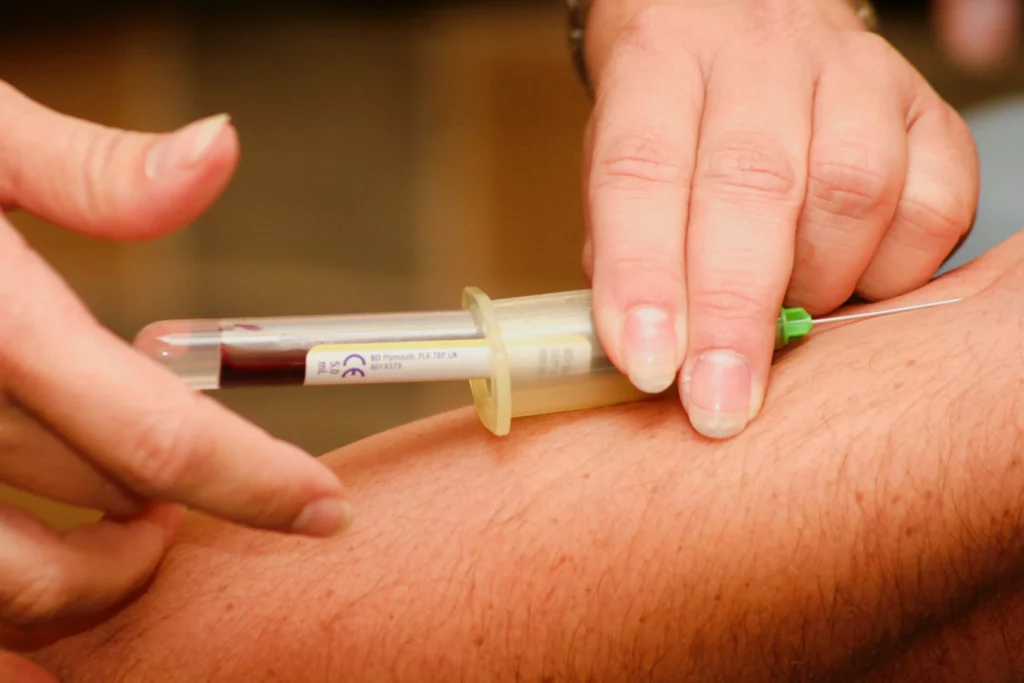
When it comes to maintaining one’s health, diagnostic tests like blood work and lab testing are indispensable tools. These tests serve as windows into your overall well-being, providing insights into your body’s inner workings, potential health risks, and early signs of diseases. These tests are the foundation of preventive healthcare, allowing for the detection of issues before they become more severe and costly to treat.
For many seniors, Medicare is a lifeline for essential healthcare coverage. However, navigating the intricacies of Medicare can be daunting, and a critical area of concern is understanding precisely what is covered.
This comprehensive guide will explore the nuances of Medicare coverage for blood work and lab testing and shed light on how Medicare supplement plans can enhance this coverage.
Medicare Coverage for Blood Work and Lab Testing
Medicare, a federal health insurance program catering to ages 65 and older, comprises different parts. Each of these covers specific healthcare services:
- Part A: Covers hospital care.
- Part B: Covers medical services, including doctor visits and lab tests.
- Part C: Covers Parts A & B and additional items or services through commercial insurers.
- Part D: Covers prescription drugs.
While Part A covers hospital stays and related services, Part B is the segment of the program responsible for covering medically necessary diagnostic tests, which includes blood work and lab testing. This is a significant advantage for beneficiaries, as it may help you proactively manage your health by monitoring various aspects of your well-being.
While Medicare could cover blood work and lab testing, some specific conditions and criteria must be met to ensure coverage:
Healthcare Provider Acceptance: To initiate the process, you should have a healthcare provider that accepts Medicare. This means that your chosen healthcare facility or practitioner must be enrolled in the Medicare program. Confirming this in advance ensures your tests are conducted at an approved facility.
Valid Medical Reasons: Medicare typically covers blood work and lab testing when there is a valid medical reason. This reason could include an existing medical condition, specific symptoms you’re experiencing, or the need for preventive care. It’s crucial to consult with your healthcare provider to determine if a particular test aligns with your health needs and goals.
Medical Necessity: Medicare coverage hinges on the concept of medical necessity. This means your healthcare provider must deem the tests necessary based on your health status and clinical assessment. It’s not sufficient for a test to be requested on a whim; there should be a clear medical justification.
Routine vs. Medically Necessary Tests: It’s important to distinguish between routine screening tests and those deemed medically necessary. Medicare is more likely to cover medically necessary tests, such as those related to diagnosing or managing a health condition. Routine tests not linked to a specific medical concern may not be covered. It’s advisable to have open communication with your healthcare provider about the purpose and necessity of any proposed test.
Consulting Your Healthcare Provider: To navigate the complexities of Medicare coverage effectively, always consult with your healthcare provider. They are well-versed in Medicare regulations and can determine whether a specific test is covered based on your unique healthcare needs. Furthermore, they can help ensure the tests are appropriately documented and submitted for Medicare reimbursement.
Navigating Healthcare Gaps: The Vital Role of Medicare Supplement Plans
Medicare, as a cornerstone of healthcare for seniors and individuals with disabilities, is a crucial safety net. It offers coverage for various medical services, ensuring beneficiaries can access essential care. However, like any comprehensive program, Medicare isn’t without its gaps. These gaps can manifest as out-of-pocket costs, limitations on coverage, or specific healthcare needs not fully addressed. This is where Medicare supplement plans, often called Medigap, could help as indispensable assets in your healthcare strategy.
Comprehensive Coverage with Medigap: Medicare supplement plans offered by private insurance companies are precisely what their name suggests—a supplement to your existing Medicare coverage. These plans are thoughtfully designed to help fill the gaps that may exist in your Medicare benefits. They could act as a protective shield against unexpected healthcare costs and provide you with a more comprehensive safety net.
Addressing Out-of-Pocket Expenses: While Medicare could cover a significant portion of your healthcare expenses, it doesn’t cover everything. Deductibles, copayments, and coinsurance can add up, especially if you require frequent medical services or face a sudden health crisis. Medigap plans could step in to cover some or all of these out-of-pocket costs, alleviating the financial burden and providing peace of mind.
The Medicare Supplement Free Look Period: One of the most noteworthy aspects of Medigap plans is the Medicare supplement free look period. As mandated by federal law, this may help provide a unique opportunity for beneficiaries to assess and evaluate their chosen Medigap plan without commitment. During this time, which typically lasts for at least 30 days, you can enroll in a Medigap plan with no risk.
Exploring Your Options: The Medicare supplement free look period may allow you to try out your chosen Medigap plan, fully assess its suitability, and gauge how it aligns with your healthcare needs and preferences. If, for any reason, you find that the plan doesn’t meet your expectations, you could have the option to cancel it within the free look period and receive a full refund of your premiums.
Freedom of Choice: Another advantage of Medigap plans is the flexibility they could offer in healthcare choices. According to the Center for Retirement and Research, these plans often allow you to visit any doctor or specialist who accepts Medicare, eliminating the need for referrals or staying within a network. This flexibility ensures that you have the freedom to receive care from the providers you trust and who best meet your healthcare needs.
State-Specific Guidelines: It’s important to note that the duration and specifics of the Medicare supplement free look period can vary by state. Each state may have its own regulations governing this period. Therefore, it’s crucial to consult your state’s guidelines to understand the exact terms and conditions that apply in your area. This ensures that you make informed decisions within your state’s Medigap regulations.
Unlocking the Benefits of Regular Blood Work and Lab Testing
Regular blood work and lab testing are powerful tools for preventive healthcare, offering numerous advantages beyond medical reports.
Early Detection: These tests could act as sentinels, detecting medical conditions in their earliest stages. Diseases like diabetes, certain cancers, and cardiovascular issues often show minimal symptoms initially. Timely testing may uncover these conditions before they become more challenging to treat, significantly improving outcomes and quality of life.
Chronic Illness Management: For those with conditions like diabetes, hypertension, or kidney disease, regular monitoring is crucial. These tests could provide data that helps healthcare providers adjust treatment plans and medications, ensuring tailored care for your current health status.
Personalized Health Planning: Blood work and lab testing are essential for personalized healthcare. They may identify your unique health risks, dietary needs, and exercise requirements, allowing for a tailored healthcare strategy aligned with your health goals.
Cost-Effective Prevention: Prevention is cost-effective. These tests could help detect and address health issues early, reducing the need for costly hospitalizations, surgeries, and long-term treatments. They may be an investment in long-term financial well-being.
Healthier Future: Incorporating these tests into your healthcare routine helps plant the seeds for a healthier, cost-effective future. Being proactive about your health can lead to a vibrant, active life and potentially reduce the need for extensive medical interventions later.

Conclusion
Understanding Medicare coverage for blood work and lab testing is essential for seniors looking to maintain their health. While Medicare covers many diagnostic tests, meeting specific criteria and considering the potential out-of-pocket costs is essential. Exploring Medigap plans, especially during the Medicare supplement free look period, may provide additional financial protection and peace of mind.

Pingback: clindamicina tópica